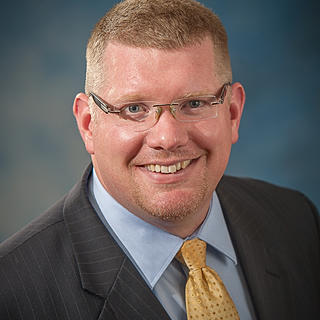Avoiding Probate for Farmland
- Chad A. Ritchie, Esq.
- Oct 31, 2022
- 5 min read
Updated: Jun 4, 2025

Central Illinois is home to some of the most productive and desirable farmland in the world.
In McLean County alone, there are over 900 individuals or entities that own more than 100 acres of farmland. If you include all of the collar counties around McLean County – such as Livingston, Logan, Tazewell, Woodford, Ford, and Dewitt counties – there are over 3,000 farmland owners that own more than 100 acres of farmland. With farm ground selling anywhere from $16,000 to $20,000 per acre in Central Illinois, farmland is oftentimes a major component of many individual's and family's estates in Central Illinois.
1. What is Probate? Probate is the court process of transferring assets from a deceased person’s estate to their heirs or legatees. Most people want to avoid probate for their estate because of these reasons:
a. Probate Takes a Long Time: It takes about a year to complete in Illinois if there are no complications. This means your heirs won’t receive their inheritance until this year-long probate process is over.
b. Probate is a Public Process: Because probate is done through local courts, it is a public process. Your estate plan, inventory of assets, accounting of assets, and family disputes can all be reviewed by anyone just by asking the court clerk for your probate file. There is no privacy with probate.
c. Probate is Made to Pay Creditors of Your Estate: One of the main goals of probate is to pay any creditors of your estate; transferring assets to your heirs is a secondary goal in probate.

One of the main estate planning concerns farmland owners should have is avoiding probate for their estate. Here is a primer on how to avoid Probate for Farmland Owners in Illinois:
2. What is a Probate Asset? Probate only applies to assets that are considered “probate assets”. In simple terms, a probate asset is an asset that is owned by just one person (not jointly with others) and does not have a beneficiary designation (like life insurance policies and retirements accounts). Because these assets are owned by one person and do not have beneficiary designations, then these probate assets do not automatically transfer upon the owner’s death to their heirs. Because these assets do not automatically transfer, we have to use the court process of probate to, 1) determine who shall inherit the asset(s) and, 2) transfer title of the asset from the deceased person’s estate to their heirs.
3. Farmland is Generally a Probate Asset: Based upon my experience helping hundreds of families with their estate plans – if someone owns farmland without having a formal estate plan done, that farmland is most often classified as a probate asset, triggering probate for that person’s estate. Note: A comprehensive analysis of all of the assets of one’s estate is needed to determine if an estate will avoid probate or not, but in general, (based upon my experience) farmland is one type of asset that triggers probate the most.
4. What Are the Different Methods to Avoid Probate For Farmland? Here is a general overview of how farmland can avoid probate:
a. Joint Ownership: This is the simplest method to avoid probate for your farmland. If John Smith owns farmland, solely in his name, he can sign a quit claim deed which will make it so he and his wife, Jane Smith, are joint owners of the farmland. With this in place, if either John or Jane were to pass, the surviving spouse will automatically inherit the farmland. The only issue would occur in the event that both John and Jane die at the same time; then there is no joint owner to inherit and the farmland becomes a probate asset again. Also, in our scenario – John has no control of the property after he dies. Once Jane inherits the farmland, it becomes part of her estate and she can sell it or give it to whomever she wants upon her death. John has limited control of the farmland with joint ownership. Finally, anytime farmland is quit claimed to someone else, it is technically a gift for tax purposes and a tax advisor should be consulted.
b. Life Estate: John could sign a quit claim deed giving himself a life estate interest in the farmland and his children, or any other third party, a remainder interest in the farmland. This means that John has all of the rights to use and possess the farmland while he is living. Upon his death, the farmland automatically transfers to his children (or whoever he named as a remainder beneficiary). John is naming his children as remainder beneficiaries of this farmland when he creates the life estate for himself. Using a quit-claim deed is another simple way to avoid probate. However, once a quitclaim deed is recorded it cannot be undone without the agreement of the remainder beneficiaries. There may be gift tax issues associated with this transfer as well. Again, a tax professional should be consulted.
c. TODI (The Illinois Transfer on Death Instrument): Illinois allows landowners to name beneficiaries of their real estate through a deed-like document called a "Transfer on Death Instrument" -- I pronounce as "Toad-y". A TODI is a document that can be recorded while someone is alive that allows the real estate that they own – whether it is residential or commercial real estate – to be transferred to named beneficiaries in the TODI document upon the real estate owner's death. A TODI is a document that is a mix between a deed and a will. The TODI contains the legal description of the real estate being transferred (like a Deed). The TODI must be notarized when signed (like a Deed) and also must be witnessed by two witnesses while being signed (like a Will in Illinois). See this article for more information about TODIs.
d. Trusts: John could have a trust set up for himself while he is living. Once the trust exists, he can transfer the farmland into the trust. The farmland can be managed by John while he is living. He will receive the income from the farmland during his lifetime. John can sell the farmland during his lifetime if he wants to. John can provide for Jane after he dies and then state in the trust the farmland is then transferred to his children upon his wife’s death. So long as John can revoke or amend his trust there are no tax consequences when John transfers the farmland into the trust. Trusts are a powerful estate planning tool that offers flexibility and control of assets after John dies.
Conclusion: As you can see, there are different techniques we can use to avoid probate for someone’s estate. With estate planning, there are generally many factors to consider – avoiding probate being one of them. Other considerations are family dynamics and tax consequences. Through proper planning, we can strike a balance between simplicity and complexity of the estate plan and meeting your estate planning goals. If you are interested in making sure your farmland avoids probate for your estate, contact the Ritchie Law Office, Ltd. to schedule your Ritchie Legacy Planning Session.
Note: This article was originally published on December 27, 2018 and republished on October 31, 2022.
This article is a service of Attorney Chad A. Ritchie and the Ritchie Law Office, Ltd.
Click Here or call (309) 662-7000 to learn more about Ritchie Law Office, Ltd. and our Estate Planning process, which starts with an initial consultation called our “Ritchie Legacy Planning Session”.
To sign up for the Ritchie Law Office, Ltd. monthly newsletter, click here! Keep up with estate planning news, federal and state legislation affecting your estate plans, and the latest events and happenings at Ritchie Law Office, Ltd.
.jpg)







